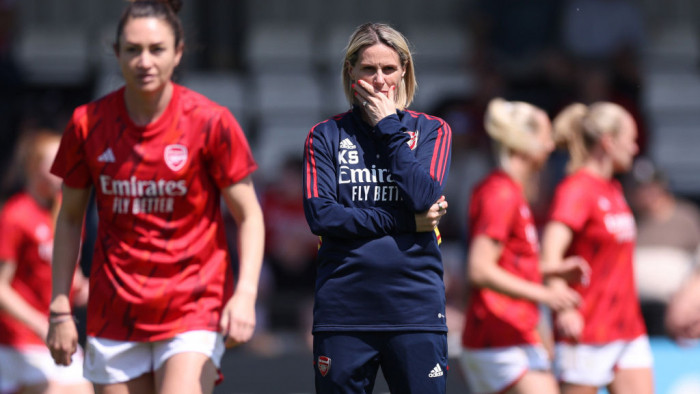Everything that could affect England’s World Cup chances according to data
Just much does travel affect a team? What is the effect of altitude on sportsmen? We crunches the numbers


Football isn’t coming home, it’s gone far, far away, with Gareth Southgate’s 23-man squad currently settled in Russia for the 2018 FIFA Men’s World Cup. As distance goes that’s, as the crow flies, a 1,959 mile trip from London to play Tunisia in Volgograd, then 491 miles over to Nizhny Novgorod to play Panama, and then onto a 928 mile journey to Kaliningrad in Belarus to, hopefully, beat Belgium. Presuming that England only play the group stages that journey is 3,378 miles overall, with the squad traveling an average of 709 miles between each game.
Of course, the commute could be worse. It’s not as if Russia’s hosting any games in, say, Vladivostok, less than 100 miles from North Korea, or wherever in Siberia Sarah Palin once claimed to be able to see out of her Alaskan window.
Plus, the squad will travel by plane or luxury coach. That said, travel can take its toll, and when you consider that England’s only ever won the World Cup when it played each and every single game not only in their home country, but at Wembley Stadium, there’s got to be something, sorry - at play - when it comes to travelling for a tournament.
To test this theory of blame displacement - it could never be unlucky group selections, mis-matched squads, flaming tempers/egos or unconvincing managers that lost it for England, could it? - I did some math.
First, let’s just decide what makes a good performance, math-wise. I worked out, as a percentage, how many teams England performed just as well as or better than in each tournament. I did not average this out, and instead adjusted calculations for the increased size of the tournament over time e.g 4th place at Italia 90 (with 24 teams) ranks worse than 6th at Korea/Japan in 2002 (with 32 teams) by simple virtue of having to beat more teams, sorry 90s fans.

Fig 1
Now, let’s work out how much travel gets in the way of England leapfrogging this number to victory.
How will travel affect the England football team?

I worked out the distance - as the crow flies - between London and the first game England played at each tournament.

Fig 2
England can do better - no shock here - when the first game of the tournament is less than 1,000 miles from London. As well as that Wembley tenancy in 1966, England does better than 69% of other teams in European countries like Germany, Spain, France and Italy. The odd one out is Sweden, when England travelled 646 miles to Gothenburg only to do better than 44% of competitors. But ignoring this (it’s over half a century ago), England performs, at a mean average, better than 84.4% of other teams when at a European-hosted World Cup.
A similar correlation is that England tends to do worse than average when the team travels over 5,000 miles for their first game. The exceptions are Mexico 1986, when the team travelled 5,657 miles to the first game in Monterrey and still beat 83% of the competition, and Japan/Korea 2002, when the squad travelled 5,935 miles to beat 84% of the other teams. However, out of England’s sub-69% performances, four were started more than 5,000 miles from London. Not even ignoring the flukes of 1986 and 2002, the average attainment of England at these long-haul tournaments is just 66%.
“Russia 2018 is the first time England has begun a World Cup tournament anywhere between 1,000 and 5,000 miles away from London”
I asked an expert how travel affects performance, from a mental health point of view.
Suzy Reading, a wellbeing-focused psychologist, says: “Travel can create all kinds of pressures and invasion of personal space that make us frazzled. Longer haul has the wear and tear on the body, and being confined in a space it has its toll on the immune system, fatigue, mental clarity, your mood.”
But sports psychologist and director of InnerDrive, Bradley Busch, says distance to the first game isn’t so much of a big deal: “It’s quite fairly established that European teams tend to do better than events held in Europe, and likewise South American teams tend to play better in South America, but for major events like the World Cup or Olympics, squads tend to have a holding camp somewhere in the middle to ease into that process, to help people acclimatise.”
Verdict
If England are going to do well, it helps for them to travel under 1,000 miles from home, and definitely helps if they’re fewer than 5,000 miles from home. Russia 2018, however is the first time ever that England begin a World Cup tournament between 1,000 and 5,000 miles away from London so, from the distance perspective, the outcome is very unknown.
How will jet lag affect the England football team?

What about the biggest killer of them all: time. Could time-difference be an issue? After all, travelling to, say, Germany, is going just one hour ahead, going to Chile, Brazil or Mexico is a huge step back. Let’s get the data:

Fig 3
It doesn’t seem to explain England’s brilliant Japan/Korea performance in 2002 (where it’s 8 hours ahead) or Mexico 1982. “Most of the research on jet-lag and athletes tends to be done in the US, where NFL and NBA players travel across various timezones regularly,” says Bradley. But as well as the holding venues, “athletes can also get to the first venue with plenty of time. I’ve never heard an elite footballer attribute a major tournament performance to jet-lag.”
Verdict
Going 2 hours forward bodes well for the England team; they generally do well when travelling ahead of time. But that said, and as Bradley points out, there’s plenty that the team can do to avoid jet-lag. Therefore we’re calling it a poor excuse.
Will travel between games affect the England football team performance?

The England team arrive in Russia ahead of the World Cup
What about travel between the games, then? I worked out (as the crow flies, of course, because sadly there’s no certifiable way of finding out how Nat Lofthouse and co got from Basel to Bern at the 1954 World Cup, at least without me turning into basement-dweller levels of nerd) the mean average distance travelled between each game.

Fig 4
England either does very well or very badly when not travelling for games. Yes, there was 1966’s successful Wembley tenancy, but this is counterbalanced with the squad’s stint at the Sweden 1958, when they achieved their joint poorest performance. The average distance travelled between games at their worst performances is 147 miles, and the average distance travelled between their best performances is 174 miles. There does seem to be a sweet spot, though, somewhere around this 174 mark.
“You can hazard an answer, but I wouldn’t be able to reason why that might be the case,” concedes Bradley, who also suggests: “If you’re travelling a lot, though, either in terms of distance or time anyone who commutes to work regularly gets frustrated and bored.”
But when I suggest to Suzy that a poor previous performance is perhaps more easily forgotten if you can physically get away from it all, she agrees: “You can put it to bed, you can compartmentalise it in a way you can’t if you’ve got to go back to that environment again.”
Verdict
England have only once before had an average travel distance between games over 333 miles, and it was in Brazil 2014 - you know, the second worst performance ever by the England team. Considering the average travel time in Russia is 709 miles, that could prove an issue. A bad one.
How will the weather and temperature affect the England team at the World Cup?

To work out the temperature of the stadium, I did some quick maths. For games played during the day, I took the average high for temperature in that city in June. For evening games, I took the average between high and low for that city in June, then added 3 degrees, because night games aren’t played at the coldest part of night - even though that could potentially make things easier for English players more used to playing November games north of the Watford Gap.
I then averaged out the games’ temperatures to get this result:

Fig 5
The average temperature of England’s better-than-69% World Cup performances is 21.9 degrees Celsius, and the average temperature of England’s worse-than-69% World Cup performances is, um, 22.1 degrees. Though England’s top two performances - England 1966 and Japan/Korea 2002, have a matching average game temperature of 20.3 degrees, it was also an average of 20.5 degrees in Switzerland 1954, when England only got 69%. Even if I remove Mexico 1986, where England did astonishingly well considering the distance they travelled to get there, the average top temperature of England’s top 7 World Cup performances is still 20.8 degrees.
This doesn’t mean temperature doesn’t matter, though Bradley tells me, as apprehensions about Qatar 2022, where the average temperature in June is a desiccating 40 degrees in the evening, show: “For all teams [temperature at Qatar] is a number one performance concern: how do you combat playing in temperature with a humidity massively higher than what you’re used to in terms of preparation, high intensity sprints on the pitch and recovering afterwards? A lot of people will be discussing strategies now. A lot of the European teams reported struggling with the heat at the 1994 World Cup [in the USA, England didn’t qualify] and they had to have water breaks half way through the halves.”
Bradley puts me onto something else, though. Altitude: “In South American countries some teams perform better at home, because they’re used to performing at altitude.”
Verdict
Unless the Beast from the East returns, the average temperature is set to be 21.5 degrees, which is pretty close to what England endured in France 1998 (72%) and Italy 1990 (83%). Probably be alright then.
How will altitude affect the England team performance during the World Cup?

The higher you go up, the less oxygen is concentrated in the air. This means your lungs have to work harder to get oxygen pumping around your system. And if your lungs are so busy, then your legs are in trouble. So let’s see how altitude impacts England’s World Cup performance.

Fig 6
Excluding Mexico 1986 (seriously, how did the squad manage that?), England play far better when playing below an average tournament altitude of 1000 feet. And, apart from the obvious cock-up that was Sweden 1958, just 10 feet above sea level, there are some easy examples of great games played at low altitude.
Wembley stands at 42 feet above sea level, and though there’s been nothing so far to explain England’s relative success in Japan/Korea, what with it being over 5,000 miles from London, brimming with inter-game travel and jet-lag, all games were played an average altitude of just 64 feet. And England’s 3-0 win against Denmark at Niigata was played literally six feet below sea level. England also won all three of its group stage games in Spain 1982 in Bilbao, which is just 54 feet above sea level.
England’s other great falls from dizzying heights, including the 4-1 thrashing by Germany at Bloemfontein in the quarter finals of South Africa 2010, which was played at 4650 feet above sea level, and the squad’s abysmal performance at Brazil in 2014, the worst outcome since 1962, came about at an average of 1830 feet above sea level. Chile, Switzerland and Mexico 1970 (which England played, on average, 2,000 feet above the games they played on their 1986 re-turn), are also all poor tournaments for England played out in stadiums in the sky.
Verdict
England’s group games are, on average, just 240 feet above sea level. Which looks pretty positive for the team in Russia.
In summary, our brave boys have quite a lot to contend with outside of even setting a foot on a pitch. And that’s before we even get into the psychological pressure of being a footballer at the World Cup.
Bradley explains that “The big challenge is not being weighed down by the expectation that sometimes accompany England to major tournaments”. Suzy maintains that the fans can really help, “That sense of feeling wrapped up with support, you’re in it together and you’re playing to the supporters who are witnessing it unfold. That’s gotta have an impact, totally.”
And there are other psychological hurdles. It’d be remiss to not mention the slight hurdle of England’s ethnically diverse squad trying to play amidst Russia’s rank, and oft-demonstrated racism at public sports events. The England squad has received specific training on overcoming racism, and Bradley says “We’ve considered a whole range of possible scenarios which might happen and might affect performance,”
As for any LGBT+ fans who could be helping bolster the crowds, well, they’ve basically been informed that vigilante groups will come for them, and the police will stand by and just watch. That might not bode too well for morale.
[Images: Getty]
Latest
Related Reviews and Shortlists


Best gifts for runners that they'll actually want and use








